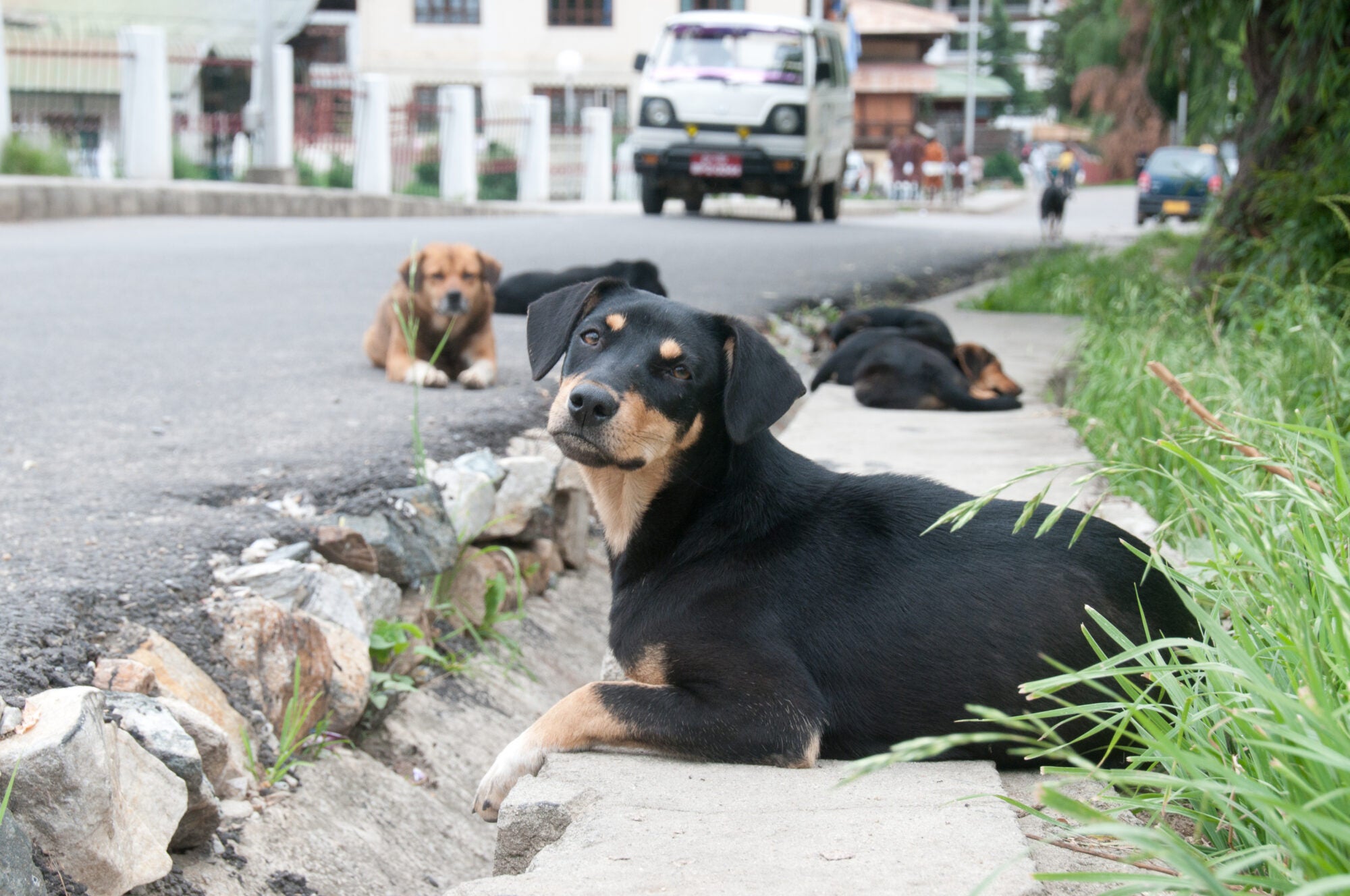
SANTIAGO, Chile―Almost 100 cats living in Chile’s largest and oldest prison facility have received veterinary care for the first time thanks to a joint program by Humane Society International and local Chilean charity Felinnos Foundation. The cats living with the estimated 4,482 inmates at the Santiago Sur Criminal Detention Center were spayed and neutered, vaccinated and treated for wounds and parasite infections.
Cats were originally introduced at the penitentiary―known locally as the CDP―to control the rodent population. However, with no sterilization services, the cat population has grown uncontrollably in living conditions that are extremely challenging for both prisoners and animals. The largely cement paved outdoor spaces do not provide the cats with adequate environments to relieve themselves, generating a hygiene problem, and as inmates are not permitted to bring cat food into the prison, the animals live on leftover human food. The lack of food for the cats poses health issues for the cats along with the risk that some inmates who care for several cats go without adequate food themselves.
The most critical issue, however, is that the cats do not receive any veterinary care, resulting in untreated wounds, disease and high kitten mortality. Some inmates attempt to treat the cats as best that they can, often using home remedies with the limited resources available. Despite the challenging circumstances, many inmates have a strong and loving bond with the cats they care for, and a genuine desire to improve the quality of life for these animals.
The groups carried out the prison cat program over three days in cooperation with the Chilean Gendarmerie. Around 30 cats per day were collected from the prison, given medical care for any conditions, spayed/neutered, vaccinated against rabies, kept overnight to recover, and then returned to their inmate guardians or to the penitentiary location where they were found. Cat food was also provided to the inmates so that the cats receive proper nutrition.
Dr. Katherine Polak, Humane Society International’s vice president of companion animals and engagement, says: “Prison cat programs help both pets and people, having a profound impact on the health and wellbeing of prisoners, cats, administrators and society at large. Spaying and neutering helps stabilize the cat population and prevents excess kittens from being born. Providing medical care helps ensure cats are kept healthy, live longer and the potential for zoonotic disease transmission is minimized. Ultimately the cats help people too, by lowering inmate stress levels, providing companionship and fostering opportunities for inmates to express nurturing behaviors and responsibility. There is even evidence to suggest that inmates who interact with cats while in prison are less likely to reoffend.”
Marcela Diaz, Humane Society International’s manager for companion animals and engagement in Chile, says: “This comprehensive prison cat program at the Santiago Sur Criminal Detention Center is unique in Chile, working with all stakeholders to foster an appreciation of and participation in humane animal care and population management. It’s also a great example of collaboration between private and non-government organizations to improve the living conditions, health and well-being of cats residing in the CDP. In recent years, the number of inmates requesting medical care and food for the cats has increased, highlighting the importance of preserving the human-animal bond.”
ENDS
Media contact:
- Wendy Higgins, HSI director of international media, whiggins@hsi.org
- Marcela Diaz, HSI companion animal program manager in Chile, mdiaz@hsi.org; +56 9 81569726



